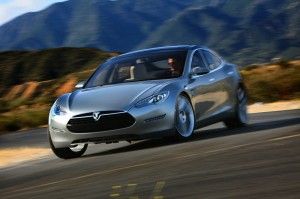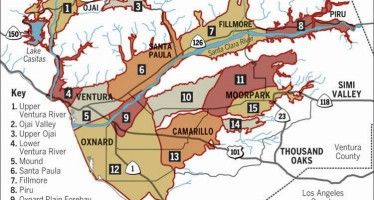Electric cars upend CA politics
 As California’s electric car industry heats up, Sacramento’s role in incentivizing the vehicles for environmentalist reasons has become an uncharacteristic political football.
As California’s electric car industry heats up, Sacramento’s role in incentivizing the vehicles for environmentalist reasons has become an uncharacteristic political football.
Underscoring the disruptive effect of the often libertarian sensibility behind auto innovations, the controversy has pitted Republicans against wealthy coastal elites and Democrats against the automakers pushing the industry toward a zero-emissions future.
Republican populism
The problems started with the handsome benefits granted by the Golden State to buyers of lower-emissions vehicles, whatever their earning power. “Hundreds of Californians with household incomes of $500,000 or more have collected state subsidies for buying electric and hybrid cars under a program that is criticized as a taxpayer handout to the wealthy,” the Los Angeles Times reported:
“State regulators, in response, are restricting the subsidies to Californians who earn less than $250,000 or couples taking in less than $500,000. But that standard is also under fire from some lawmakers and anti-tax activists, who ask why subsidies worth up to $5,000 are given to people who can already afford the cars.”
According to some Republicans, the giveaway reflected the willingness of Democrats to shower privileges on the wealthy if their spending habits reflect liberal ethics.
Burgeoning business
But the electric car industry has also come under fire from the other side of the aisle — for taking advantage of pricey state programs designed to subsidize companies with outsized economic potential.
Last year, Tesla raked in $15 million in credits — a hefty share of the $150 million in total divided up among 212 companies — “drawing criticism about whether the electric car manufacturer deserved the money,” according to the Sacramento Business Journal. This year, the Journal noted, legislators signed off on $200 million for the so-called California Competes program, which chooses winners based on “employee wages and the industry’s importance to the California economy,” among other factors.
The economic stakes, already high for Tesla and a recovering California, have recently been ratcheted even higher: Tesla competitor Fisker has inked a deal returning the once-bankrupt luxury electric car company to California shores. Bought up last year by the China’s Wanxiang Group, Fisker “signed an 11-year lease worth an estimated $30 million” in Riverside County’s Moreno Valley,” the Times reported, “giving California its second electric car manufacturing plant after Tesla’s Fremont factory.
What’s more, a low-profile new entrant into the electric car market has announced the possibility of a California headquarters of its own. Gardena’s Faraday Future said “it’s scouting several locations for a new factory, fueling speculation about a state tax-credit race similar to last year’s push for Tesla’s gigafactory,” the Journal reported. “The company hopes to announce a location for a manufacturing plant sometime in the third quarter of 2015, and would bring cars to market in late 2017,” according to a spokesman.
Environmental pressure
Adding to the sense of chaos, the big climate change bills headed to the Assembly have activated opposition from lawmakers who find themselves caught in the ideological crossfire — or opportunistically seeking a quick serving of pork for their constituents. “Some moderate Democrats, charging ‘coastal elitism,’ say the bills will harm the middle-class families they represent in the Central Valley,” the San Jose Mercury News observed; “others are trying to shake down legislative leaders for handouts that benefit their districts.”
The legislation, added the Mercury News, would put gasoline-powered vehicles in the crosshairs — “cutting petroleum use by cars and trucks in half over the next 15 years and slashing greenhouse gas emissions to 80 percent below 1990 levels over the next 35 years.”
The electric car companies, of course, have an interest in seeing standards rise. As the Wall Street Journal recently noted, Tesla has pushed to ensure Sacramento’s mileage and emissions regulations could become “even more stringent,” while laboring “to keep other auto makers from loosening regulations in California.”
Related Articles
What groundwater regulation will bring
This is Part 2 of a two-part series. Part 1 is here, and described California’s new green groundwater regulatory scheme. For
Deceptive Agency To Punish Deception
NOV. 29, 2010 By LAER PEARCE On Wednesday a California state agency with a well-earned reputation for deception will hold
Bill makes ex-cons a protected class
JUNE 1, 2010 By LAURA SUCHESKI If you don’t hire ‘em, you might join ‘em, if a new bill proposed



